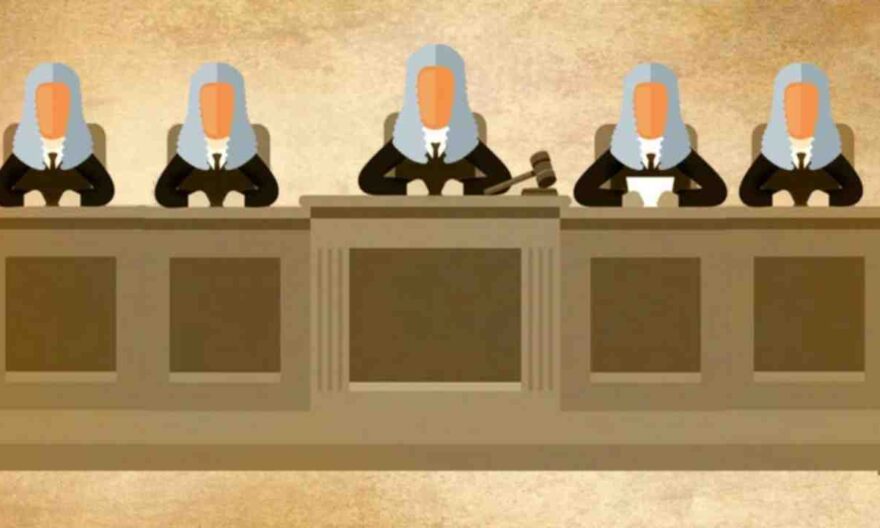
A five-judge constitution bench of the Supreme Court is scheduled to hear three significant matters, commencing on September 20, 2023.
According to a notice recently posted on the apex court’s website, the constitution bench will comprise Chief Justice D Y Chandrachud and Justices A S Bopanna, M M Sundresh, J B Pardiwala, and Manoj Misra.
Among these is a matter that concerns whether an MP or MLA can assert immunity from criminal prosecution for receiving a bribe in exchange for a speech or vote within the Legislative Assembly or Parliament.
In 2019, a bench led by then Chief Justice Ranjan Gogoi referred this crucial issue to a larger bench, citing its far-reaching implications and substantial public importance. At that time, the three-judge bench announced its intention to revisit its 24-year-old judgment in the high-profile Jharkhand Mukti Morcha (JMM) bribery case, following an appeal filed by Sita Soren, a JMM MLA representing the Jama constituency in Jharkhand.
In its 1998 five-judge constitution bench verdict in the PV Narasimha Rao versus CBI case, the Supreme Court ruled that parliamentarians enjoyed constitutional immunity against criminal prosecution for speeches made and votes cast within the legislative house.
Furthermore, the constitution bench will hear the constitutional validity of section 6A of the Citizenship Act, introduced as a special provision to address the citizenship of individuals covered by the Assam Accord. This provision stipulates that individuals who arrived in Assam on or after January 1, 1966, but prior to March 25, 1971, from specified territories, including Bangladesh, must register themselves under section 18 for citizenship if they have been residing in Assam since then. Consequently, March 25, 1971, serves as the cutoff date for granting citizenship to Bangladeshi migrants in Assam. The apex court currently has 17 pending petitions on this matter.
Lastly, the constitution bench will examine the issue of extending reservation to SC/ST communities in Lok Sabha and state assemblies beyond the original 10-year timeframe. Article 330 of the Constitution provides for the reservation of seats for Scheduled Castes (SC) and Scheduled Tribes (ST) in the House of the People. The Supreme Court had referred this matter to a five-judge bench on September 2, 2003, following a series of pleas challenging the validity of the 79th Constitution Amendment Act of 1999, which introduced reservation for SC/ST communities in Parliament and state assemblies.




